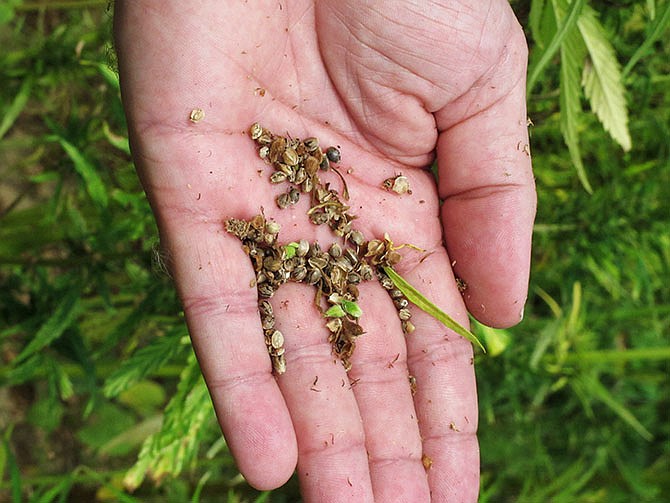Have you seen hemp seed products at the local markets? If not, take a look the next time you are at the store.
Hemp seed is found in many forms, from edible oil and milk to flour and protein powder. Nutritional benefit comes from the fiber content, protein and the oil, containing healthy unsaturated fatty acids, phytosterols and nutrients. Rich in magnesium, phosphorus, iron and manganese, hemp also contains antioxidant properties that fight oxidative stress. Edible hemp products also contain anti-inflammatory, antiallergenic and cryoprotective compounds.
So how does this translate to the average person? For non-fish eaters, hemp seeds provide omega-3 health benefits equal to eating fish. The combinations of omega fatty acids in the seeds provide cardiovascular and inflammatory reducing properties. It is believed hemp seeds may provide reduction in blood clots, arterial plaques and LDL cholesterol levels. Likewise, clinical studies show peptides from hemp seed powder inhibited angiotensin-converting enzyme, a substance that narrows blood vessels and renin and can increase blood pressure through sensors in the kidneys
Interestingly, another study investigated the impact of using hemp seed oil in cooking versus other cooking oils. The study involved people with atopic dermatitis. Again, significant improvement in skin condition was seen. Future studies are underway to better understand the results and see if other skin conditions may also be helped with hemp oil use.
When it comes to the protein content of hemp seeds, they are comparable to dairy, soy and egg white proteins. Since these seeds do not contain oligosaccharides, they may increase digestibility. The amino acid profile (except for lysine) is superior to other forms of protein.
While these tiny seeds are starting to sound like a perfect food, what about allergies? As with any other type of food, it is possible to be allergic to hemp seeds. However, since hemp seeds and fiber aren't in the ragweed family, anyone with this common allergy will be safe. Another downfall with hemp seed food products is a short shelf-life, so buying in large quantities may not be an option.
Hemp seeds can be eaten raw, cooked or roasted. Hemp products don't contain gluten; these flours are a good alternative to wheat products. As an alternative milk product or oil, hemp provides a nutty taste. They can be incorporated in homemade energy and protein balls or bars and incorporate them in muffins, breads and cookies. Raw or roasted hemp seeds can be sprinkled on salads or added to smoothies.
Dianna Richardson of the Health, Wellness & Nutrition Center in Jefferson City has served communities as a wellness practitioner for more than 20 years. She has her doctorate degree in naturopathy, a master's degree in health and wellness, a bachelor's degree in public health education and is a certified wellness specialist. Core to her practice has been the use of nutrition to enhance health and improve vitality.


